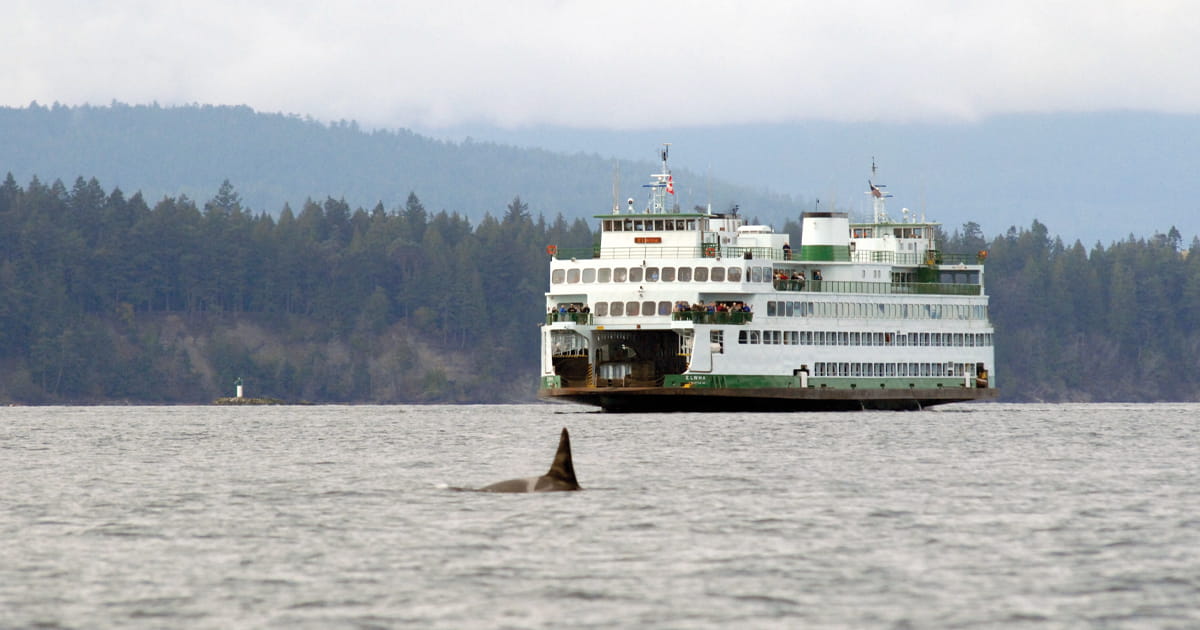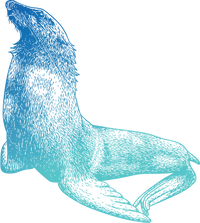The Seattle Aquarium works on policies to reduce noise and disturbance impacts on the endangered southern resident orcas, which currently number only 75. Quieter waters will make it easier for the orcas to communicate with each other and find scarce salmon, while we all work to restore habitat so that those salmon are more abundant.
We have supported new requirements for slow-speed zones and vessel distance, measures to reduce oil spill risk, and state funding for the Quiet Sound program to encourage large ships to voluntarily slow down, and we’ve asked the Navy to do more to mitigate the potential impacts of sonar testing on the orcas. The Seattle Aquarium is also one of the shore-based marine mammal viewing spots along the Whale Trail.
But there is more that we can do to make the waters safer for the endangered orcas, and we invite you to join us in taking action when you’re outside this summer and beyond.
When ships collide with whales and dolphins, it can cause serious injury and even death. But with timely warnings, shipmasters and pilots can slow down the ship, alter course, increase vigilance or turn off their sounders to reduce disturbance and the risk of hitting a whale. Using the WhaleReport app, we can all help ensure that ship captains know when whales are in their vicinity.
The WhaleReport Alert System (WRAS) was developed in Canada by Ocean Wise and its partners, and a few years ago Governor Inslee’s Orca Task Force recommended expanding it to Washington waters. The WRAS has already delivered over 8,000 alerts to ship operators in Canada and Washington. But the platform needs more real-time sightings reports, especially from here in Washington, to be as effective as possible.

Here’s how you can help!
If you spot a whale, dolphin, porpoise or sea turtle—from shore, a ferry or a boat—report it via WhaleReport as soon as possible (in addition to any reporting you’d normally do to a local sightings network). It only takes a couple of minutes, and there are two ways you can do it:
- Fill out the short form at report.wildwhales.org. (The first time you go to the page, it will ask for your details.* If you are on your personal computer, you can ask the browser to store your information so that you only need to enter this information once.)
or
Note that sightings data reported to the WhaleReport Alert System is only shared with the operators of large ships, tugs, ferries and government agencies. The data is not available for public use. The Whale Museum is responsible for data collection in Washington state and also uses the reports for conservation-oriented research.
If you would like to learn more about how the system works, visit wildwhales.org/wras.
Thank you for taking action to protect marine wildlife!
*Ocean Wise researchers will only use your contact information to ask you any follow-up questions regarding your sighting reports to aid in our research efforts and will not contact you for any promotional reasons. Your details are protected under Ocean Wise’s Privacy Policy.
